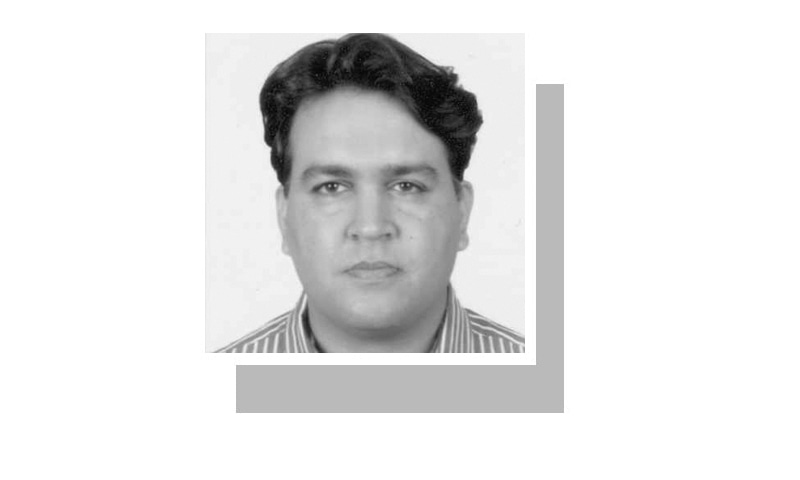
AS the Supreme Court is presently seized of the Panama leaks’ issue, often portrayed as the ‘greatest example of corruption’ and raised to a level akin to a ‘national security threat’, it would be wrong to comment on this sub-judice matter.
But irrespective of the debate about the centrality or secondary nature of the Panama leaks as compared to more pressing issues of public importance, such as militancy and poverty, it is commendable that there is virtual consensus in society that there should be an open, transparent and expeditious accountability of the matter, preferably under the supervision of the Supreme Court.
It is precisely this linkage between accountability and the transparency, openness and relative expeditiousness of such accountability that gives credibility to the accountability of any institution especially powerful state institutions.
What harm could come from disclosing how many complaints were filed before the SJC?
What is indeed disappointing is the denial of such open judicial accountability of the superior judiciary itself through a recent Supreme Court order dated Sept 29, 2016, passed by Chief Justice of Pakistan Anwar Zaheer Jamali, in CM Appeal No.135 of 2016 in CP No. Nil of 2016, filed by lawyer Mohammad Raheel Kamran Sheikh. It is especially disappointing for the reason that it is the present chief justice who publicly spoke about the judicial accountability of judges of the high courts and the Supreme Court, an exercise which we naïvely believed would be transparent, open and expeditious.
Mr Kamran Sheikh had filed a public interest petition directly before the Supreme Court against the Supreme Judicial Council (SJC), ie the institution which conducts the internal accountability of high court and Supreme Court judges. Through this petition, he sought, inter alia, two things. The first was public disclosure about the total number of complaints or references filed before and dropped by the SJC and the number of complaints that had become infructuous.
Secondly, he sought the expeditious disposal of all complaints filed and pending before the SJC. Interestingly, this petition was objected to by the registrar. An appeal filed against the registrar’s objections was dismissed by an order passed by the Supreme Court chief justice. The Supreme Court order is surprising as well as legally flawed for the following reasons.
Firstly, under Article 209 of the Constitution, it is the chief justice of Pakistan who heads the SJC. This petition was filed against the SJC. In other words, the chief justice was hearing and deciding a case against an institution headed by him. The practice and convention as adopted in the ‘CJP Iftikhar Muhammad Chaudhry case’ is that when a petition was filed in the Supreme Court against the SJC itself no judge of the Supreme Court who was also a member of the SJC heard or decided the case. As reported in the media, Mr Sheikh raised an objection against the chief justice hearing this case but the court order is silent on this objection.
Secondly, the order holds “it is one of the important aspects of the proceedings before the Supreme Judicial Council that at every stage of its proceedings … complete confidentiality and secrecy is to be maintained about the actions taken by the Council”. Regardless of the legal basis purportedly justifying this secret judicial confidentiality, how can such confidentiality and secrecy be justified in a democratic set-up, where prime ministers have been convicted for contempt and removed through open trials (Yousuf Raza Gilani) and military dictators are tried for treason through open trials (Musharraf)?
Thirdly, I firmly believe that the overwhelming majority of superior court judges are persons of impeccable integrity and possess a high sense of public service. So, why is there a fear that tries to justify this secret judicial accountability?
Fourthly, in order to justify this secret judicial accountability, the Supreme Court holds that “the prayer made by the petitioner in his petition … is violative of the spirit of Articles 209 and 211 of the Constitution”. Article 211 states that “The proceedings before the Council, its report to the president and the removal of a judge under clause (6) of Article 209 shall not be called in question in any court”. In other words, the Supreme Court has held that we can keep the accountability confidential and secret because Article 211 of the Constitution allows us to do so.
On the face of it, it appears to be a strong argument but the Supreme Court in the ‘CJP Iftikhar Muhammad Chaudhry case’ has already decided otherwise that such ouster clauses as Article 211 have a very restricted scope, and it is precisely for this reason that chief justice Iftikhar Chaudhry’s petition filed against the SJC was allowed by the Supreme Court. It is surprising that the Supreme Court order contains no reference or discussion of this very important legal precedent.
Fifthly, the order also relies on Rule 13 of the Supreme Judicial Council Procedure of Inquiry, 2005, for the reason that Rule 13 directs the proceedings of the council not to be reported. But to bar media reporting of such proceedings doesn’t restrict the Supreme Court itself, on a petition filed before it, from making public disclosures about the number of complaints pending or dropped, or directions for the expeditious disposal of these complaints. What possible harm could come from disclosing how many complaints were filed, and are pending, before the council, and issuing directions that the complaints pending before it should be decided expeditiously?
The key lesson of the judicial-lawyers movement (2007-2009) is that the real source of judicial power is public legitimacy and support. But confidential, secret and delayed judicial accountability may lead to a loss in public legitimacy. Therefore, the era of secretive judicial accountability may also lead to the inauguration of the era of the decline of judicial power.
The writer is a Visiting Fellow at the McGill University, Canada.
Published in Dawn, October 29th, 2016











































